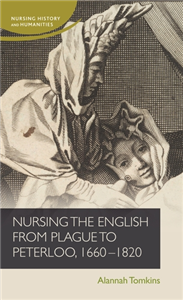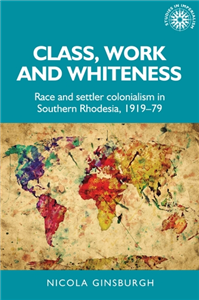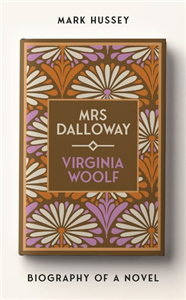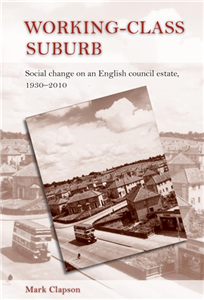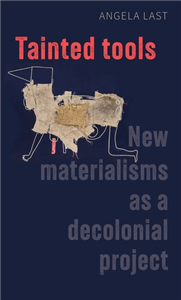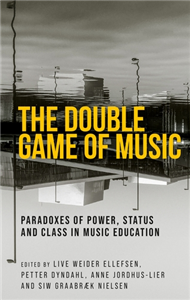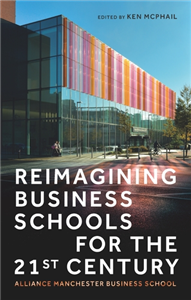Your Search Results
-
World for kids
Our passion is to show kids, how colourful and fascinating the world is. There is not only one way to live but so many. We love curious children and we do the books they need to explore the world. So we do travel books for kids and novels for the journey in a hammock.
View Rights Portal
-
Promoted ContentHumanities & Social SciencesNovember 2024
Culture is bad for you
by Orian Brook, Dave O'Brien, Mark Taylor
-
Promoted ContentMedicineJanuary 2025
Nursing the English from plague to Peterloo, 1665-1820
by Alannah Tomkins
This book studies the negative stereotypes around the women who worked as sick nurses in this period and contrasts them with the lived experience of both domestic and institutional nursing staff. Furthermore, it integrates nursing by men into the broader history of care as a constant if little-recognised presence. It finds that women and men undertook caring work to the best of their ability, and often performed well, despite multiple threats to nurse reputations on the grounds of gender norms and social status. Chapters consider nursing in the home, in general hospitals, in specialist institutions like the Royal Chelsea Hospital and asylums, plus during wartime, illuminated by multiple accounts of individual nurses. In these settings, it employs the sociological concept of 'dirty work' to contextualise the challenges to nurses and nursing identities.
-
 Trusted Partner
Trusted Partner
-
 Trusted Partner
Humanities & Social SciencesDecember 2022
Trusted Partner
Humanities & Social SciencesDecember 2022Class, work and whiteness
Race and settler colonialism in Southern Rhodesia, 1919–79
by Nicola Ginsburgh
This book offers the first comprehensive history of white workers from the end of the First World War to Zimbabwean independence in 1980. It reveals how white worker identity was constituted, examines the white labouring class as an ethnically and nationally heterogeneous formation comprised of both men and women, and emphasises the active participation of white workers in the ongoing and contested production of race. White wage labourers' experiences, both as exploited workers and as part of the privileged white minority, offer insight into how race and class co-produced one another and how boundaries fundamental to settler colonialism were regulated and policed. Based on original research conducted in Zimbabwe, South Africa and the UK, this book offers a unique theoretical synthesis of work on gender, whiteness studies, labour histories, settler colonialism, Marxism, emotions and the New African Economic History.
-
 Trusted Partner
Biography & True StoriesMay 2025
Trusted Partner
Biography & True StoriesMay 2025Mrs Dalloway
Biography of a novel
by Mark Hussey
A compelling biography of one of the most celebrated novels in the English language. The fourth and best-known of Virginia Woolf's novels, Mrs Dalloway is a modernist masterpiece that has remained popular since its publication in 1925. Its dual narratives follow a day in the life of wealthy housewife Clarissa Dalloway and shell-shocked war veteran Septimus Warren Smith, capturing their inner worlds with a vividness that has rarely been equalled. Mrs Dalloway: Biography of a novel offers new readers a lively introduction to this enduring classic, while providing Woolf lovers with a wealth of information about the novel's writing, publication and reception. It follows Woolf's process from the first stirrings in her diary through her struggles to create what was quickly recognised as a major advance in prose fiction. It then traces the novel's remarkable legacy to the present day. Woolf wrote in her diary that she wanted her novel 'to give life & death, sanity & insanity. to criticise the social system, & to show it at work, at its most intense.' Mrs Dalloway: Biography of a novel reveals how she achieved this ambition, creating a book that will be read by generations to come.
-
 Trusted Partner
Humanities & Social SciencesSeptember 2020
Trusted Partner
Humanities & Social SciencesSeptember 2020Class, work and whiteness
by Nicola Ginsburgh, Alan Lester
-
 Trusted Partner
Trusted Partner
-
 Trusted Partner
November 2010
Trusted Partner
November 2010Die Pariser Weltausstellung 1889
Bilder von der Globalisierung
by Beat Wyss
Die gelungenste Weltausstellung aller Zeiten war die Exposition Universelle de Paris von 1889. Weit über 32 Millionen Menschen besuchten das gigantische Spektakel mit knapp 62.000 Ausstellern aus 54 Nationen und 17 französischen Kolonien. Das Wahrzeichen der Schau, der Eiffelturm, blieb Paris bis heute erhalten. Einen legendären Ruf erwarb sich auch das offizielle, wöchentlich erscheinende Journal der Weltausstellung. Auf großformatigen, mit Stahlstichen üppig illustrierten Seiten berichtete es von den Sensationen vor Ort, von dreirädrigen selbstfahrenden Karren und ethnologischen Dörfern, in denen es Kamelreiten für die Kinder und Bauchtänze für die Herren gab. Der Schweizer Kunsthistoriker Beat Wyss hat die hundert originellsten Abbildungen ausgewählt. Sie illustrieren, wie die Expo den Erdball auf ein »Weltdorf« zwischen Trocadéro und Champ de Mars schrumpfen lässt, wie räumliche Distanzen abgebaut und dabei kulturelle Differenzen freigelegt werden. Das späte 20. Jahrhundert wird dafür den Begriff der Globalisierung prägen. Beat Wyss zeigt, wie die Gesellschaften seit dem 19. Jahrhundert mit diesem Prozeß umgehen und mit der Verwestlichung der Welt eine Orientalisierung des Westens einhergeht. Dem Leser als Flaneur über die Bühne der Weltausstellung wird klar: Die Expo 1889 belegt nicht nur den aktuellen Zustand einer Zeit, sondern bietet über die spektakuläre Anordnung ihrer Exponate den Vorschein einer gesellschaftlichen Utopie.
-
 Trusted Partner
The ArtsSeptember 2024
Trusted Partner
The ArtsSeptember 2024The renewal of post-war Manchester
Planning, architecture and the state
by Richard Brook
A compelling account of the project to transform post-war Manchester, revealing the clash between utopian vision and compromised reality. Urban renewal in Britain was thrilling in its vision, yet partial and incomplete in its implementation. For the first time, this deep study of a renewal city reveals the complex networks of actors behind physical change and stagnation in post-war Britain. Using the nested scales of region, city and case-study sites, the book explores the relationships between Whitehall legislation, its interpretation by local government planning officers and the on-the-ground impact through urban architectural projects. Each chapter highlights the connections between policy goals, global narratives and the design and construction of cities. The Cold War, decolonialisation, rising consumerism and the oil crisis all feature in a richly illustrated account of architecture and planning in post-war Manchester.
-
 Trusted Partner
August 1985
Trusted Partner
August 1985Die Besiegten
Aus dem Schwedischen von Beat Mazenauer. Mit einem Nachwort von Gunilla Palmstierna-Weiss
by Peter Weiss, Beat Mazenauer, Gunilla Palmstierna-Weiss
Peter Weiss wurde am 8. November 1916 in Nowawes bei Berlin geboren und starb am 10. Mai 1982 in Stockholm. Zwischen 1918 und 1929 lebte er in Bremen, wo er das Gymnasium besuchte. 1929 kehrte die Familie Weiss nach Berlin zurück, musste jedoch 1934 emigrieren. Die erste Station bildete London, darauf folgte 1936 die SR. In diesen Jahren widmete sich Peter Weiss vorwiegend der Malerei – 1937/1938 studierte er Malerei an der Kunstakademie in Prag. In dieser Zeit besuchte er Hermann Hesse während zweier längerer Aufenthalte in der Schweiz. Die dritte und letzte Emigrationsstation bildete 1939 Schweden, wo Peter Weiss zunächst in Alingsås, ab 1940 in Stockholm wohnte. Hier setzte er seine Tätigkeit als Maler fort. 1947 hielt er sich als Korrespondent einer schwedischen Tagesszeitung in Berlin auf. Seine Artikel versammelte er 1948 zu seiner ersten Buchpublikation. Der Band erschien posthum 1985 unter dem Titel Die Besiegten. Ab diesem Zeitraum entstanden, in schwedischer Sprache, die ersten Prosaarbeiten, Gedichte, und Dramen. Zu den wichtigsten Erzählungen aus dieser Schaffensperiode zählen Die Situation aus dem Jahre 1956 sowie das 1980 unter dem Autorenpseudonym Sinclair veröffentlichte Buch Der Fremde. Keines seiner Manuskripte wurde jedoch von einem schwedischen Verlag zur Publikation angenommen. Mitte der fünfziger Jahre begann Peter Weiss in deutscher Sprache zu schreiben. 1960 erschien sein erstes Prosabuch Der Schatten des Körpers des Kutschers. Zu Beginn der siebziger Jahre wand sich Peter Weiss wieder der Prosa zu. Zwischen 1975 und 1981 erschien der dreibändige Roman Die Ästhetik des Widerstands, deren letzter Band begleitet wird von Notizbücher 1971 – 1980. Ihm wurde posthum der Georg-Büchner-Preis für das Jahr 1982 zuerkannt. Beat Mazenauer, geboren 1958, Germanist und Historiker, lebt als Literaturkritiker und freier Autor in Luzern.
-
 Trusted Partner
Humanities & Social SciencesFebruary 2012
Trusted Partner
Humanities & Social SciencesFebruary 2012Working–class suburb
Social change on an English council estate, 1930–2010
by Mark Clapson
Not all council estates are the same. A detailed historical account of the birth and social evolution of the Whitley council estate in Reading, Working-Class Suburb challenges many of the more depressing images and cultural stereotypes about council housing in twentieth and twenty-first century England. Key areas covered by the study are housing and politics; community campaigns; women and the corporate life of council estates; the uses of leisure; the relationships between tenants, residents and the local authority, and continuities in working-class life despite economic, demographic and political change. The book will be of interest to anyone studying urban history and social history, to professionals working in the fields of housing policy and housing studies, and to the growing number of academics interested in suburban studies. ;
-
 Trusted Partner
MedicineDecember 2020
Trusted Partner
MedicineDecember 2020African nurses and everyday work in twentieth-century Zimbabwe
by Clement Masakure, Jane Schultz
-
 Trusted Partner
Trusted Partner
-
 Trusted Partner
Literature & Literary StudiesJune 2026
Trusted Partner
Literature & Literary StudiesJune 2026Tainted tools
New materialisms as a decolonial project
by Angela Last
Tainted Tools makes a provocative intervention into the fraught intersection between new materialist and decolonial approaches. Despite a common project of challenging European philosophical and social categories and hierarchies, the discourses are considered incompatible. Most prominently, new materialisms have been accused of harbouring a White vision of the human while disregarding the racist resonances of the 'nonhuman'. The book traces this conflict to an earlier meeting point of new materialist and decolonial projects, which came about through the experimental combination of Marx and Nietzsche. Used to fight fascism, Stalinism and colonialism, this politically contentious fusion gradually became depoliticised, leading to unaddressed tensions today. While the book does not argue for a revival of these early 'new materialisms', it brings their strategies into dialogue with today's new materialisms and decolonial approaches to develop greater theoretical solidarity in times of crisis.
-
 Trusted Partner
The ArtsDecember 2025
Trusted Partner
The ArtsDecember 2025The double game of music
Paradoxes of power, status and class in music education
by Live Weider Ellefsen, Petter Dyndahl, Anne Jordhus-Lier, Siw Graabræk Nielsen
The double game of music imagines music education as a series of games - each with its own rules, play currency and players - to challenge readers to rethink the significance of music and musical upbringing in shaping social structures. Drawing on their own empirical research and a wide range of international contributions, the authors unravel the intertwining of social positioning and power hierarchies with players beliefs in the pure values and virtues of their games, whether these relate to parenting, children's play, schooling, academic pursuits, musical leisure activities or the television and music industries. In a world where music is often celebrated as an important tool for inclusion and democratisation, this groundbreaking book offers a timely critique, revealing complexities and contradictions that tend to be overlooked by teachers, researchers, politicians and others interested in the powers of music education.
-
 Trusted Partner
November 2025
Trusted Partner
November 2025Reimagining business schools for the 21st century
Alliance Manchester Business School
by Kenneth McPhail, James Pendrill
Whether it's dealing with regional economic disparities, global geopolitical upheaval, climate change, or the impact of new technologies such as artificial intelligence, we are living in pivotal times. To mark its 60th anniversary in 2025, this accessible book from Alliance Manchester Business School outlines in detail how business schools can play a significant role in confronting these huge challenges, and equip the next generation of business leaders with the skills they need to embrace them. Informing public and political debate on the role of business in both the causes and solutions to our biggest challenges the book offers a rethinking of the role of business in society. It will also discuss specific examples of how collaborations with business are leading to impact and change in society. Featuring a range of thought-provoking essays co-authored by eminent academics and business leaders, this collection will challenge the status quo and outline how business and management research is helping address grand challenges, generate economic growth, inform policy development, and define business thinking over the next generation.
-
 Trusted Partner
Business, Economics & LawSeptember 2020
Trusted Partner
Business, Economics & LawSeptember 2020Neoliberal lives
by Robert Chernomas, Ian Hudson, Mark Hudson
-
 Trusted Partner
Humanities & Social SciencesAugust 2002
Trusted Partner
Humanities & Social SciencesAugust 2002The rise of the Nazis
by Conan Fischer, Mark Greengrass
How and why did the Nazis seize power in Germany? Nearly seventy years on, the question remains heated and important discoveries continue to challenge long standing assumptions. Beginmning with an overview of the historical context within which Nazism grew, looking at the foreign relations, politics and society of Weimar and in particular at the role of the elites in the rise of Nazism. The book questions the anatomy of Nazism itself: What lent Nazi ideology its coherence and credibility? What distinguished the Nazi's programme from their competitors' and how did they project it so effectively? How was Hitler able to put together and fund an organisation so quickly and effectively that it could launch a sustained assault on Weimar? Who supported the Nazis and what were their motives? Where, precisely, does Nazism belong in the history of Europe?. Since the publication of the first edition, important new works have appeared and this new scholarship has been incorporated into the text. ;
-
 Trusted Partner
Humanities & Social SciencesSeptember 2019
Trusted Partner
Humanities & Social SciencesSeptember 2019Inequality and democratic egalitarianism
by Mark Harvey, Norman Geras
-
 Trusted Partner
Business, Economics & LawJuly 2018
Trusted Partner
Business, Economics & LawJuly 2018Market relations and the competitive process
by Stan Metcalfe, Stan Metcalfe, Alan Warde, Mark Harvey





